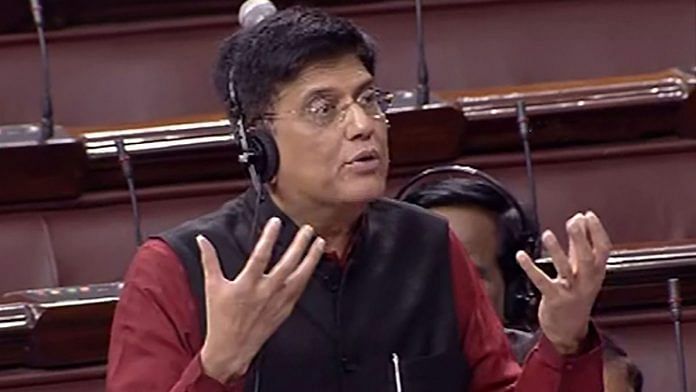New Delhi: The RCEP did not “adequately” address India’s concerns over issues like non-tariff barriers to trade and opaqueness in subsidy regime in some countries, which forced it to back out from the trade deal, the government informed Rajya Sabha on Tuesday.
Besides, the government is also going to review the free trade agreement between India and ASEAN countries by the previous governments as it has created trade imbalances, Union Minister of Commerce and Industry Piyush Goyal said in a statement.
According to the minister, imports from these countries have increased much more than exports from India.
“The government’s priority is also to correct the asymmetry in the existing agreements and maximise its export potential to benefit domestic industry and farmers to promote Prime Minister’s vision of Make in India and doubling farmers’ income,” said Goyal.
The minister also said that India would continue to engage with other countries as “equal partner and on the principle of reciprocity”.
“We are working with our existing FTA partners like South Korea and Japan to address our concerns,” said Goyal in his statement on trade agreements with RCEP countries.
Also read: ‘With or without India’: 15 member countries decide to sign RCEP on 13 March
He further added: “We have also secured an agreement to to initiate a review of ASEAN-India Trade and Goods Agreement to make the AIFTA more user friendly simple and trade facilitative.”
Over RCEP, the minister said that India continued to focus on its core demand as – level playing field, fair trade practises, transparency and market access – during the trade negotiations.
“Any trade deal like RCEP must consider that countries have very different sizes and population, unequal levels of economic development and human development indicators, contrasting levels of prosperity, investment capacity, cultural diversity and significantly different political and judicial systems,” he said.
During RCEP negotiations, the government had highlighted India’s position as a relatively low per capita GDP as compared to other RCEP countries and its concerns about the livelihood of farmers and employment generation provided by the industrial sector, particularly by the MSMEs.
The Regional Comprehensive Economic Partnership (RCEP) is a mega free-trade agreement (FTA) which was negotiated by 16 countries, including India and China.
On November 4 in Bangkok, Prime Minister Narendra Modi took the call of not joining the RCEP agreement as India’s concerns were not addressed in the pact.
Also read: India should join RCEP because it needs more trade, not less




A matter of judgment whether India’s $ 100 billion trade deficit with the RCEP bloc – half of it with China – is caused by flaws in the FTAs that have been signed or systemic competitive weaknesses in the Indian economy. 2. Say the average tariffs of the partner countries were 3%, ours were 13%. When both are eliminated due to an FTA, obviously the other side gets a much bigger boost. What some would call the Theory of Relativity.